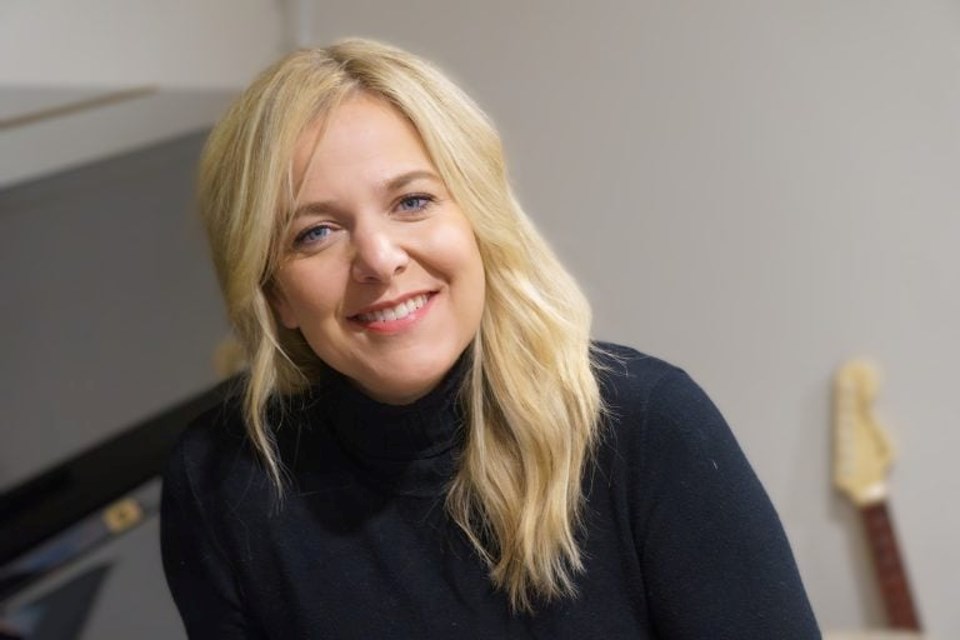Kelly Stronach didn't want money to be a burden for a child to learn music.
So the former private music teacher went back to school to get into the public sector. Now, the seventh-year music teacher at Mitchell Woods Public School in Guelph finds herself getting attention as one of the country's best.
Stronach has been nominated for the MusiCounts teacher of the year award for the second straight year.
The winner is to be announced at the Juno Awards in Edmonton next month.
It's a subject very close to her heart, and something she's always loved.
"I played in some bands, I did some gigs here and there, stuff like that and I loved all of that," Stronach told GuelphToday. "But my favourite time was the time I spent with kids, and I found it really challenging that to be a private music instructor, the only way to make a go of it was to keep charging more money from your student's families."
"I had such a problem (with that) because I didn't want (money) to be a boundary."
So off to Wilfrid Laurier University she went for its Bachelor of Education program, 10 years after initially graduating with a bachelor's of music from Queen's.
The goal: getting into the classroom, and ensuring the next generation of students learn music, something she believes is an imperative part of their education.
"For me, it's an expression of creativity," Stronach added. "And a way to get into a student, help them express their feelings and emotions in a way they may not otherwise be able to do, particularly post-pandemic, kids are dealing with a lot of really big feelings.
"But it's also a lot of that concept of taking something – it's a hands-on thing – where you don't know what you're doing, you're starting from nothing and you see that if you put the time in, and the work in, you practice and you get better."
And she's not the only one who thinks so. Stronach was also quick to credit other teachers and EAs in the school, many of whom are musicians themselves, who ensure kids are getting to music class.
"All of the staff acknowledges that music is an important part of their day, so they make it work," she said. "I just think there's probably a lot of people out there that don't get that kind of support from their staff. Our school's pretty awesome. The staff is just absolutely amazing."
She said it's really cool to see the results of students putting in the work, whether it's in the classroom – band class, the choir or what have you – or whether the student is learning music in a group in an extracurricular setting.
There's also learning about the industry itself, which is always evolving, exposing kids to different genres to expand their creative outlet and encouraging them to keep growing.
"You think about some of the musicians that are out there right now, if they were to follow the strict rules of a conservatory, they would've all failed," Stronach said. "We wouldn't have these amazing songs that we have right now because they totally don't fit the mould.
"I think it's really important that we keep reminding ourselves that it's not up to me what to decide what's good or bad. I'm just supposed to give (students) the love of it and help them on their way and show them some things they can use and learn."
But she admits there are challenges, like not having equal access to music in schools across the board.
"Some schools have a music teacher, some schools don't. Some schools have instruments, some schools don't, and I think a lot of people aren't aware of that, that it really depends on the school and depends on the situation you find yourself in," she said.
"A lot of us kind of left it up to chance, which is one of the great things about MusiCounts, they really try to help out those schools that could use the help financially to make that happen."
If Stronach walks out of Edmonton as teacher of the year, she'll also bring home a Juno Awards statuette and a $10,000 cash prize for the classroom.
And the first thing on her mind with that prize money is to invest in repairs and new equipment, more specifically digital equipment.
"We've got a little bit, we're starting, but that's expensive right at the beginning to get all that stuff going," she said.
"Some midi controllers and stuff like that (would be helpful) so we can really start working on composing some hip hop and rap and R&B type stuff that's made in the more … like how it actually is made today in the industry."
This, opposed to forcing kids to create a beat on the things they have currently, which "aren't really the authentic way it would be done now."
But that's not all. Stronach would also like to have more of a budget to bring kids on trips to see performances, to broaden their horizons and showcase the difference it makes to see something live.



.png;w=120;h=80;mode=crop)